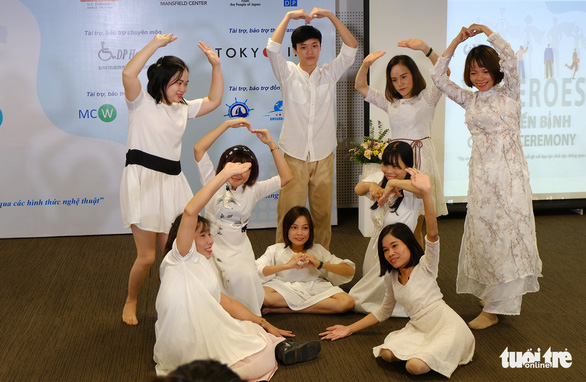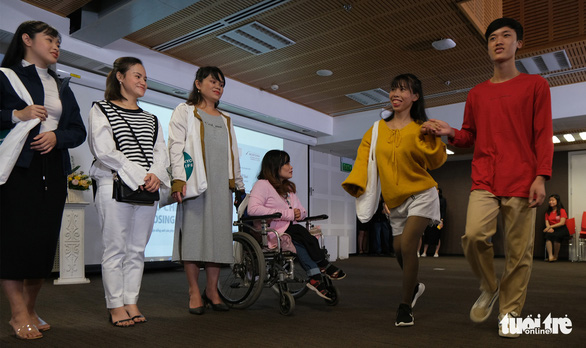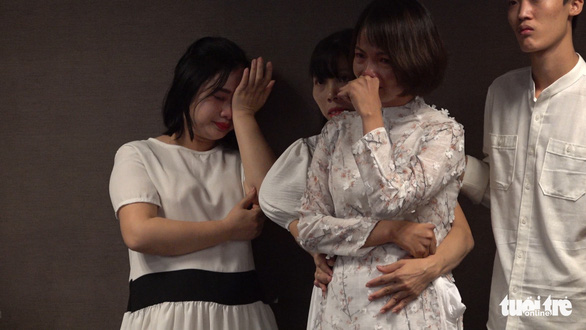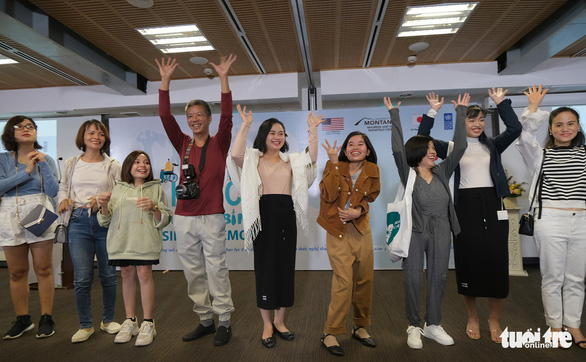Overcoming their pain, a group of disabled women confidently stepped onto the stage to perform contemporary dance and fashion shows and bravely tell their stories of suffering from sexual abuse and violence in hopes that they could help their other peers.
The activities were part of the closing ceremony of the XX Heroes project, which was run by a group of members of the Young Southeast Asian Leaders Initiative (YSEALI) and funded by the U.S. Embassy in Hanoi in collaboration with the United Nations Development Program (UNDP).
The project was commenced in October 2019 with a goal to raise the community’s awareness of prevention of sexual violence against women with disabilities.
At the beginning of the project, the disabled women, who once suffered from sexual abuse and violence, were not willing to share their stories, according to Nguyen Ngoc Lan, XX Heroes’ manager.
“There are really sad stories, for disabled people in general and women with disabilities in particular are really weak, facing many barriers to community integration,” said Lan.
|
|
| A disabled woman strolls along the runway at the closing ceremony of the XX Heroes project in Hanoi, October 17, 2020. Photo: Ha Thanh / Tuoi Tre |
In the company of XX Heroes’ members, the physically challenged women were provided with knowledge, skills, and confidence to face their problems, thereby finding solutions not only to protect themselves but also to those around them.
By the end of the project, they found bravery to recount their sufferings at XX Heroes’ closing ceremony last Saturday.
One of those stories is Tu’s, whose real name has been changed in the article for protection purposes.
“I was once harmed [by sexual assault],” Tu recounted when she started her story.
|
|
| Participants shed tears after hearing stories of sexual abuse of disabled women at the closing ceremony of the XX Heroes’project in Hanoi, October 17, 2020. Photo: Ha Thanh / Tuoi Tre |
The 26-year-old woman said that she was sexually assaulted by a very close friend of her father when she was only five years old.
The friend often came to Tu's home with candies, toys, and gentle treatment for her family.
“One time, my parents had to go away from home for a day," Tu continued.
"They sent me to that man’s house so that he and his wife could look after me.”
But when the wife left the house for some urgent tasks at her work, the man lured Tu into his room with candies.
“When I just took a candy, he violently put me on his bed,” Tu recalled in tears.
He made Tu to follow his orders with rude words like “Shut up!”, “Take off your clothes!” and even put a rag in her mouth.
|
|
| The XX Heroes project’s members pose for a photo with disabled women at its closing ceremony in Hanoi, October 17, 2020. Photo: Ha Thanh / Tuoi Tre |
“I was terrified but too weak [to resist the man],” she recollected.
“Even though the wound hasn't completely healed yet, I know coping with the pain will help me grow up and get over it."
Up to 35 percent of women around the world have experienced physical or sexual violence as Tu did, a representative of the UNDP quoted the results of a research while speaking at Saturday’s closing ceremony.
Among them, women with disabilities are twice as likely to fall victim to sexual violence as women without disabilities.
"The risk is even higher in 2020 during the COVID-19 pandemic for women in general and women with disabilities in particular,” said the UNDP representative.
Like us on Facebook or follow us on Twitter to get the latest news about Vietnam!
























































